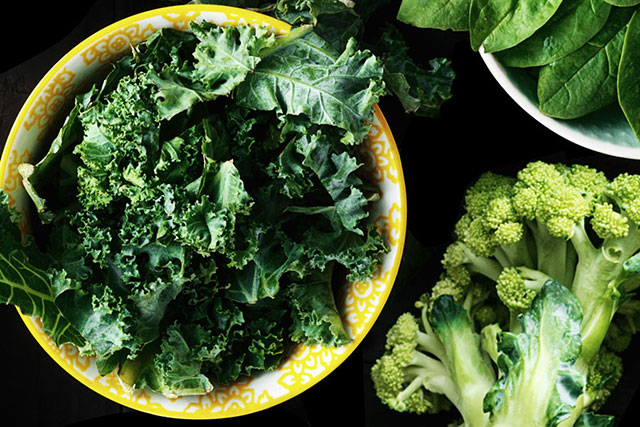Calcium in Foods

Original article by Neal Barnhard, M.D. at the Physicians Committee for Responsible Medicine.
Many people avoid milk because it contains saturated fat, cholesterol, allergenic proteins, lactose sugar, and frequent traces of contamination, or simply because they don’t feel well after consuming dairy products. Milk is also linked to type 1 (juvenile-onset) diabetes and other serious conditions. Happily, there are many other good sources of calcium.
Keeping your bones strong depends more on preventing the loss of calcium from your body than on boosting your calcium intake. Some cultures consume few or no dairy products and typically ingest fewer than 500 milligrams of calcium per day. However, these people generally have low rates of osteoporosis. Many scientists believe that exercise and other factors have more to do with osteoporosis than calcium intake does.
Calcium in the body
Almost all of the calcium in the body is in the bones. There is a tiny amount in the bloodstream, which is responsible for important functions such as muscle contraction, maintenance of the heartbeat, and transmission of nerve impulses. We regularly lose calcium from our bloodstream through urine, sweat, and feces. It is renewed with calcium from bone or from the diet. Bones are constantly broken down and made anew. Up until the age of 30 or so, we build more bone than we lose. Later, the bones tend to break down more than build up. The loss of too much bone calcium can lead to fragile bones or osteoporosis. How rapidly calcium is lost depends, in part, on the kind and amount of protein you eat, as well as other diet and lifestyle choices.
Reducing calcium loss
A number of factors affect calcium loss from the body:
- Diets that are high in protein cause more calcium to be lost through the urine. Protein from animal products is much more likely to cause calcium loss than protein from plant foods.
- Diets high in sodium increase calcium losses in the urine.
- Caffeine increases the rate at which calcium is lost through urine.
- Smoking increases the loss of calcium from the body.
A number of factors increase bone building in the body:
- Exercise is one of the most important factors in maintaining bone health.
- Exposure to sunlight allows the body to make the bone-building hormone vitamin D.
- Eating a plentiful amount of fruits and vegetables helps to keep calcium in bone.
- Consuming calcium from plant-based sources, especially green vegetables and beans, provides one of the building blocks for bone building.
Sources of calcium
Exercise and a diet moderate in protein will help to protect your bones. People who eat plant-based diets and are active probably have lower calcium needs. However, it is still important to eat calcium-rich foods every day. Green leafy vegetables, such as kale, are better than milk as calcium sources.